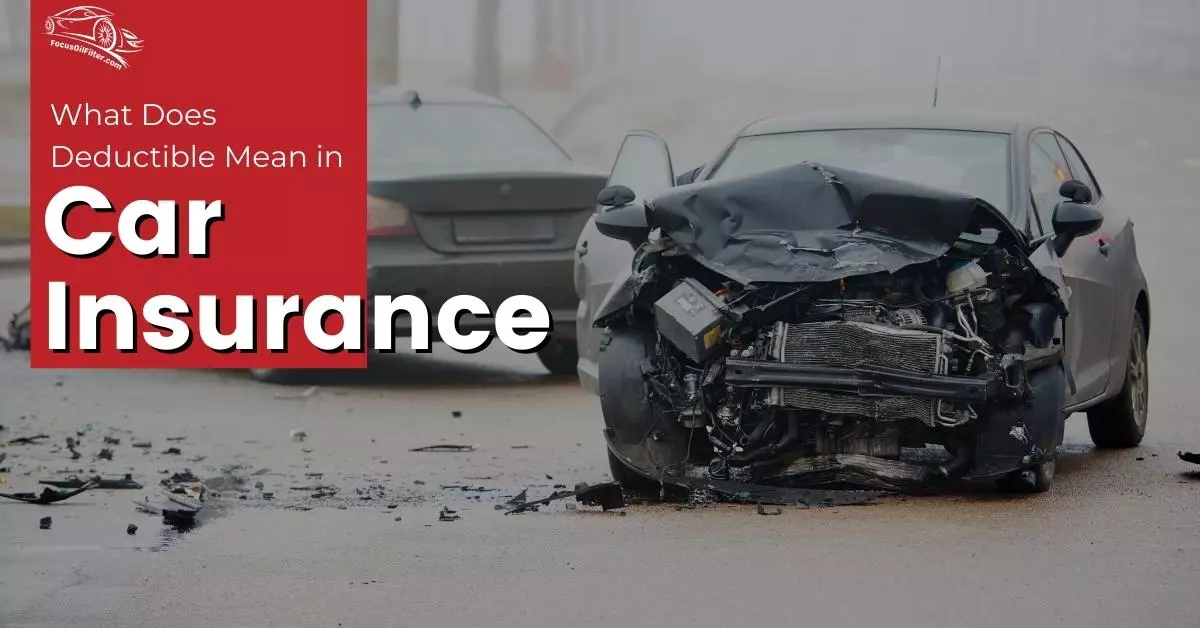We are all familiar with the term car insurance but most of us need to know about what deductible means in car insurance. It is on the grounds that we ought to comprehend the role of deductibles while we are insuring a vehicle. Because it’s anything but a significant piece of benefiting from your insuring policy. So, Let’s try to find out what deductible mean in car insurance.

What Is Deductible?
Basically, the deductible in car insurance which means the amount you need to pay after an accident on your own. In other words, you can say that while getting into an accident or any type of home disaster, a specific amount could be subtracted, or “deducted,” from your claim payment. This amount of deduction is different according to every state’s insurance policy.
Deductible Criteria for Car Insurance:
The lower the deductible, the less you’ll pay using cash on hand if an accident happens. For instance, insurance deductible and having a covered misfortune that causes $3,000 in harm to your vehicle, you would be capable of paying the principal of $5,00. Your safety net provider will pay $2,500 to fix your vehicle.
Types of Insurance Deductibles
When you take an insurance policy it’s based on different coverages. Some of the coverages have deductibles and some of the insurance coverage types do not require a deductible.
Types of Coverages That Have Deductibles:
The coverages that usually have a deductible are given below:
- Collision Coverage
As indicated by the insurance policy the expense of crash inclusion is about $300 each year. On the off chance that you record a case for harm to your vehicle under crash inclusion, the deductible on your deductible will apply.
- Comprehensive Coverage
As per the Triple-1 protection policy, the cost of comprehensive coverage is under $200 each year. In the event that you record a case for harm to your vehicle under extensive inclusion, the deductible on your arrangement will apply. The comprehensive coverage is designed to give protection to the insurer against the damages caused by fire, flood, vandalism, hail, falling shakes or trees, and different dangers, like hitting an animal.
- Uninsured/Underinsured Motorist Property Damage Coverage
This insurance coverage ensures you on the off chance that you are associated with a mishap where the blame gathering doesn’t have protection; they are an uninsured driver. This is a low coverage between $100 to $300.
- PIP Coverage
PIP is about personal injury protection and PIP helps pay for clinical costs for you and all travelers in your vehicle. The deductible on PIP depends on the state where you live and it can impact your premium accordingly.
Coverages That Do Not Require Deductibles:
There are almost two types of coverages that do not require deductibles.
- Liability Coverage
This coverage is introduced to most estates for covering the damages where you are at fault in an accident and cause of harm to another party. There is no deductible because liability coverage extends to others to whom you cause damage.
- Roadside Assistance
There is by and large no deductible, however, there might be inclusion cutoff points and covers on the measure of cases you can petition for these additional items.
Factors of Car Insurance Deductible
There are some important factors that are important to know before selecting a car insurance deductible.
- Be sure to choose an auto deductible with which you feel at ease. Also, ensure that you can stand to pay your deductible amount out of your pocket.
- Whenever you select a deductible, always remember that you should choose the amount that you can pay out of your pocket. If your pocket-friendly amount is $500 then do not choose more than that amount.
- Select a comprehensive collision coverage plan if you are having a car that is on finance or on lease.
- In some conditions, you can be free and not pay your car insurance deductible.
- If a condition occurs when you are not at fault and somebody else hits you and you are insured then you are not bound to pay the deductible.
- The second thing that goes in your favor is when you have a diminishing deductible and you pay a specific amount for this purpose each year. You are then accident-free at this stage.
Conclusion
To conclude, this is really a useful article to know what deductible means in car insurance. All the details about the deductible and when to pay it is given in this article. So, if you are thinking of getting car insurance, go through this article as well along with the other insurance-related information. Reading this article would be helpful for the insurers to get complete information regarding a deductible.
